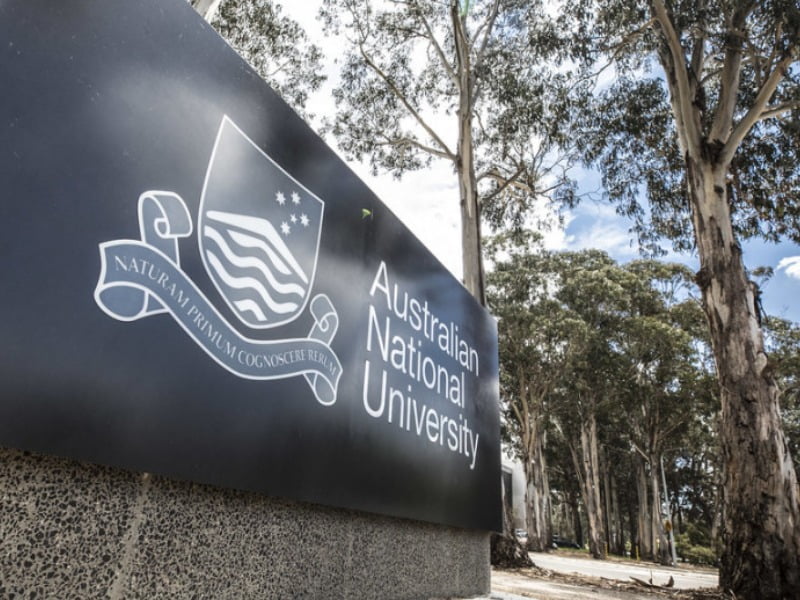The Australian National University has denied it was pressured by Boston Consulting Group to remove an academic from a panel discussion on the COVIDSafe app in an incident that has sparked outrage among staff as an attack on academic freedom.
The university has however confirmed that it discussed the issue with a Boston Consulting Group employee who was also on the panel and who is understood to have expressed concerns about questions that might be put to the panel.
The decision to change moderators – ANU academic and data scientist Dr Priya Dev was removed from the panel – was made after this discussion.
InnovationAus revealed last week that the Australian National University (ANU) had admitted that the academic freedom of Dr Dev may have been jeopardised by its decision to remove her as moderator of a panel discussion on the federal government’s COVIDSafe app, hosted by the College of Business and Economics.

Dr Dev had been asked to moderate the discussion, which was held in early July, with ANU alumnus and Boston Consulting Group (BCG) project leader Chris Davern and Clayton Utz special counsel Mathew Baldwin.
But after initial discussions on the direction of the questions and an opinion piece written by Dr Dev on COVIDSafe was circulated to the panellists, the decision was made to replace her as host with Professor Vinh Lu, an Associate Dean at the College of Business and Economics.
Dr Dev’s opinion piece, published in May, argued for the adoption of the Google and Apple framework for digital contact tracing, which uses the privacy-preserving decentralised approach, in contrast with COVIDSafe’s centralised architecture.
BCG played a key role in the development of COVIDSafe via the Digital Transformation Agency, and was contracted by the government during the early days of the project. The global consulting firm has received $885,500 so far for its work on the app.
The panel discussion was an alumni event focusing on Mr Davern’s work on COVIDSafe with BCG.
Last week a spokesperson for the ANU confirmed that Mr Davern was involved in the discussions about Dr Dev’s role as moderator. The university said this was in his role as an ANU alumnus rather than a Boston Consulting Group representative.
Following publication of the story, the ANU spokesperson said the decision to remove Dr Dev from the panel was made by the Dean of the College of Business and Economics without any pressure from the panellists or companies involved.
But the ANU spokesperson declined to say why the Dean had made the decision to remove Dr Dev as moderator.
“The Dean of College of Business and Economics made the decision to change hosts, based on a short discussion with an ANU academic. There was no pressure applied from any parties involved,” the spokesperson told InnovationAus.
Representatives from the DTA were understood to be in the virtual audience of the panel discussion.
The ANU spokesperson also declined to say whether the university regretted the decision to replace Dr Dev on the panel or whether it is reviewing the decision and what led up to it.
The ANU and BCG have a “long-standing relationship”, according to the consultancy firm. BCG leads direct recruiting of ANU graduates, and regularly holds on-campus information sessions.
The firm also offers annual scholarships to ANU students in their penultimate year, worth $20,000 per annum. BCG is currently offering two scholarships for 2020, which also come with the possibility of a full-time role upon graduation.
The ANU has also decided to not release a recording of the panel publicly or internally after one or both of the panellists declined to give permission.
A recording of the panel listened to by InnovationAus revealed the it focused significantly on the Google and Apple framework controversy, despite previous concerns over Dr Dev’s questioning on this and her previous opinion piece on the topic.
The panel also covered the early development of COVIDSafe, and issues around data gathering and consent.
It is not clear which elements of the panel discussion the panellists were concerned about being made public.
Mr Davern said he was no longer involved with the COVIDSafe project and was not privy to the discussions on whether the Google and Apple option should be implemented. He did say that doing so would address the app’s functionality issues on Apple devices, but would remove manual contact tracers from the process.
Panel moderate Professor Lu referenced a University of Adelaide study early in the discussion, which he said concluded COVIDSafe was among the best and safest contact tracing apps in the world. But he was forced to retract this by the end of the panel after audience members raised questions with the study.
As InnovationAus reported at the time, the University of Adelaide study found that COVIDSafe was among the safest in terms of centralised apps, but didn’t compare it to decentralised versions of digital contact tracing apps, which are commonly seen to be better in terms of privacy and security.
Do you know more? Contact James Riley via Email.

